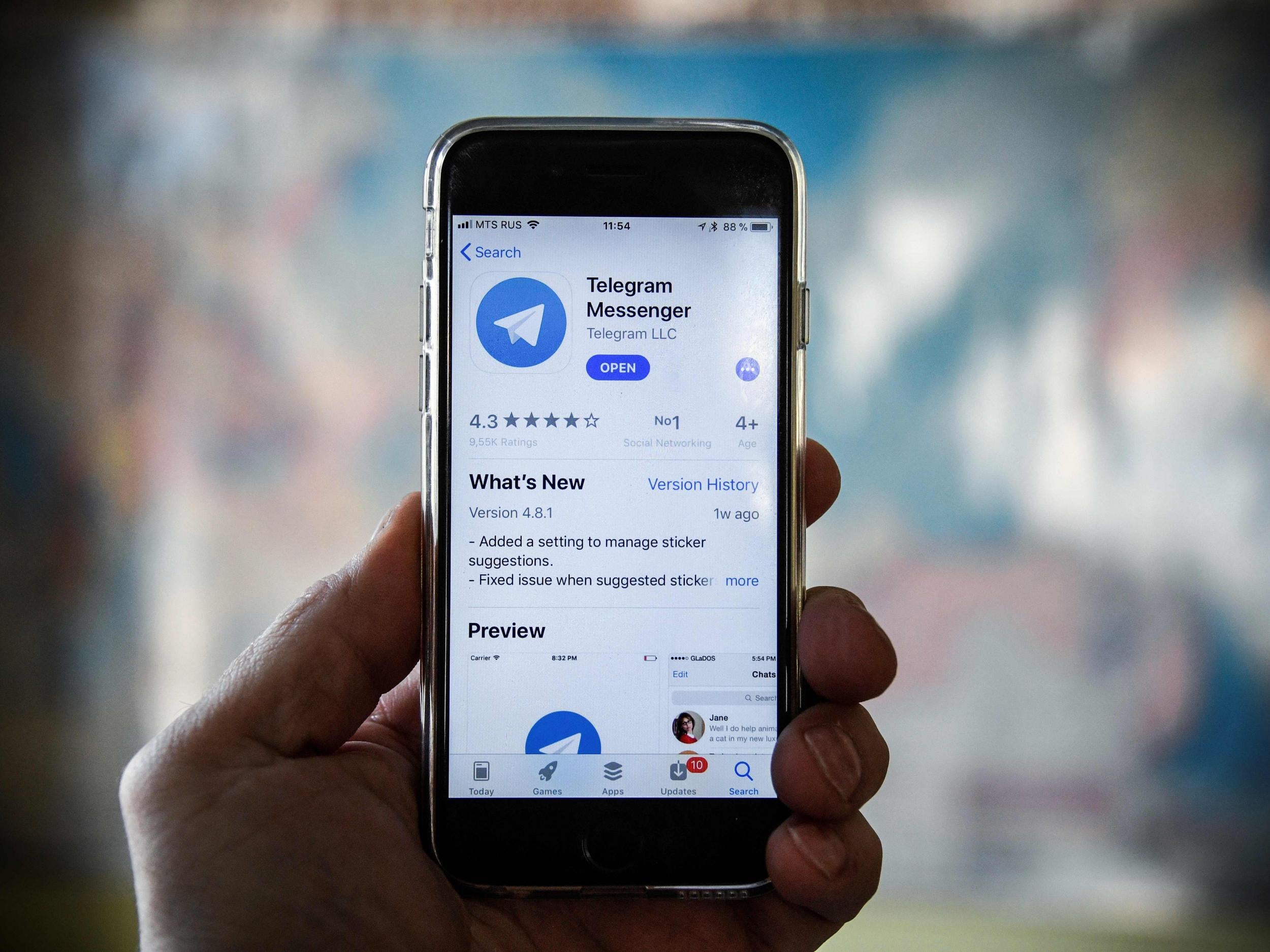Telegram ban in Russia takes down Amazon, Google, Fifa, Spotify, Nintendo, Twitch and more
'Thank you for your support and loyalty, Russian users of Telegram'

Your support helps us to tell the story
From reproductive rights to climate change to Big Tech, The Independent is on the ground when the story is developing. Whether it's investigating the financials of Elon Musk's pro-Trump PAC or producing our latest documentary, 'The A Word', which shines a light on the American women fighting for reproductive rights, we know how important it is to parse out the facts from the messaging.
At such a critical moment in US history, we need reporters on the ground. Your donation allows us to keep sending journalists to speak to both sides of the story.
The Independent is trusted by Americans across the entire political spectrum. And unlike many other quality news outlets, we choose not to lock Americans out of our reporting and analysis with paywalls. We believe quality journalism should be available to everyone, paid for by those who can afford it.
Your support makes all the difference.Many of the world's biggest sites are being disrupted in Russia, after it banned Telegram.
The country announced this week that it would block the chat app because it had failed to give up encryption keys that would let authorities read messages being sent through it.
Since then, Russian officials have been banning the IP addresses that are used by the app, so that users in the country cannot connect to them. Doing so works like shutting down a certain address in real life: when people's computers try and visit it, there is nothing there and so the app does not work.
But, to counteract that, Telegram appears to have been engaged in IP hopping. That sees it move its address around the internet, meaning that even if one IP gets blacklisted, it can be connected to using another.
As Telegram moves, Russia attempts to shut down those new IP addresses, and has now blocked millions of them. But that process – described as Whack-A-Mole by Techcrunch, which first reported the outages – is taking down many of the world's biggest websites and internet services, too.
Websites including Amazon and Google have suffered problems from the outages. Services like Spotify are also being disrupted, and so are games such as Fortnite and PUBG.
Pavel Durov, the app's founder and CEO, thanked the internet services that are helping keep the site online – even as it disrupts their own services. He also said that Russian users were using technology that helped them get around the problems.
"Despite the ban, we haven’t seen a significant drop in user engagement so far, since Russians tend to bypass the ban with VPNs and proxies," he wrote on Telegram. "We also have been relying on third-party cloud services to remain partly available for our users there.
"Thank you for your support and loyalty, Russian users of Telegram. Thank you, Apple, Google, Amazon, Microsoft – for not taking part in political censorship."
Join our commenting forum
Join thought-provoking conversations, follow other Independent readers and see their replies
Comments